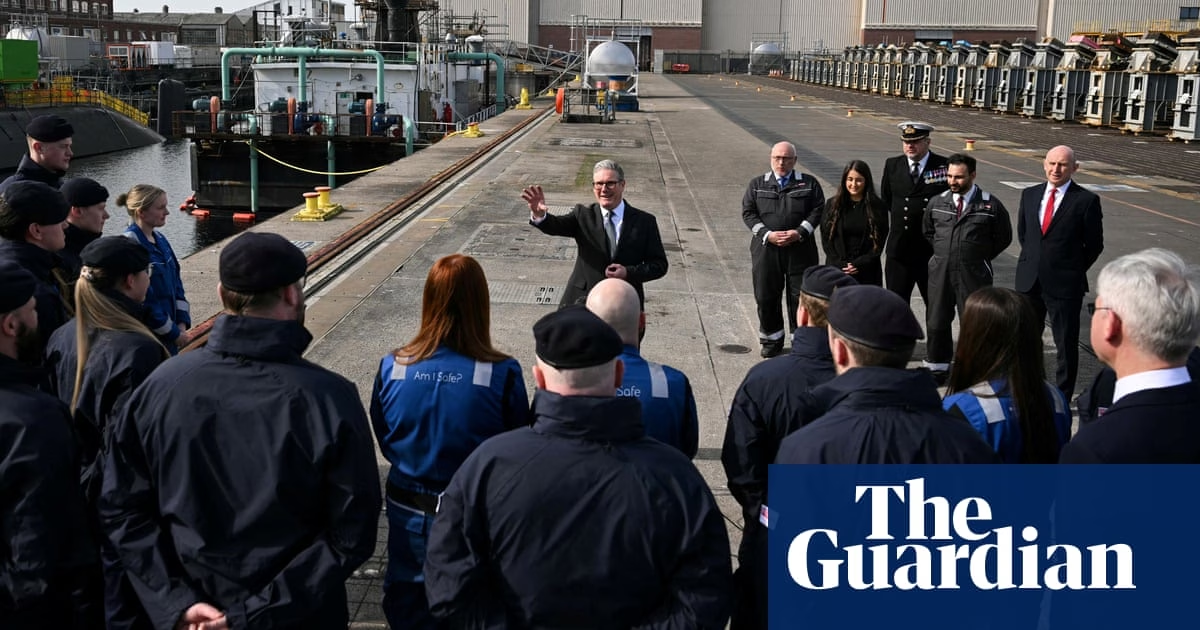Donald Trump’s isolationist policies and Vladimir Putin’s intimidating actions put post-Brexit Britain in a precarious position. The combination of US withdrawal from European affairs and the reality of Russian aggression has forced reevaluation of security across the continent, but Britain’s uncertain relationship with the EU creates additional complexities.
Prime Minister Keir Starmer aimed to demonstrate Britain’s military leadership in Europe on Thursday, with a visit to the Barrow shipyard, where nuclear submarines are constructed, followed by attending a meeting of over 30 military heads, primarily from Europe, to discuss forming a stabilization force for Ukraine.
However, this message was undermined by the EU’s announcement that it would establish a €150 billion defense investment lending scheme, from which the UK (and the US) would be excluded due to not having membership or a special status akin to Norway or Ukraine.
In practice, this barrier is not as severe, provided that a defense and security accord is reached between the two parties. Labour has actively pursued a defense treaty with the EU since before the election, with hopes to finalize negotiations in time for the EU-UK summit in May, granting the UK partial access to the scheme.
The initial EU proposal, strongly supported by France, stipulates that British manufacturers would only have access to 35% of the funds. However, successful negotiations could lead to an increase in the UK’s share or other exceptions. This development serves as a test for Labour, which has sought to normalize the UK’s relationship with the EU but has not made significant efforts to alter the post-Brexit settlement.
A key aspect of Labour’s upcoming defense review is to develop the arms industry as a means to promote economic growth. This move is particularly salient in light of US defense secretary Pete Hegseth’s recent declaration that Washington is no longer mainly focused on defending Europe and that Trump has started his phone diplomacy with Putin, discussing the situation in Ukraine.
Although the number of jobs in the defense sector is not massive, at 147,500 according to the ADS trade body, these jobs are vital to local economies, particularly outside London and the southeast. Manufacturing sites such as Barrow and Rosyth shipyards, as well as airfields like Warton and Samlesbury, provide critical contributions while trade unions are heavily invested in their success.
Recent events have intensified the focus on European defense efforts. While Britain has traditionally split its procurement among the UK, US, and European partners, the sight of Trump halting military aid to Ukraine and intelligence sharing without notice has been concerning.








